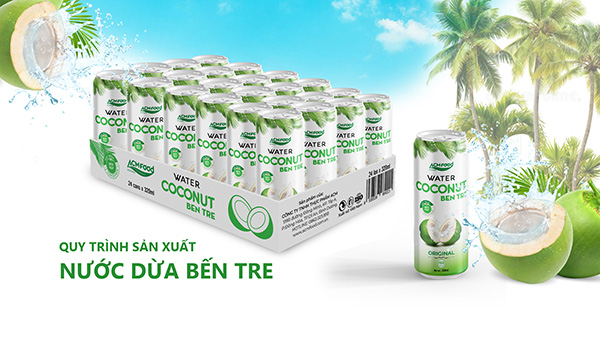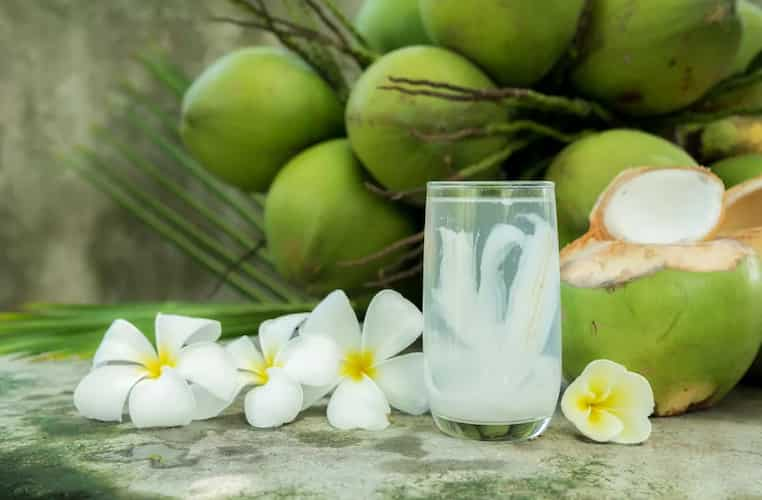Coconut water and juice have become increasingly popular in recent years, with many people touting their numerous health benefits. But what exactly is coconut water and juice, and why is it so beneficial? In this article, we will delve deep into the world of coconut water and juice, exploring their origins, nutritional value, and potential health benefits. Whether you’re a seasoned coconut water and juice enthusiast or just curious about this trendy beverage, read on to discover all there is to know about the benefits of coconut water and juice.
Contents
- 1 What is Coconut Water and Juice?
- 2 Health Benefits of Coconut Water and Juice
- 3 How to Use Coconut Water and Juice
- 4 Examples of Coconut Water and Juice
- 5 Comparing Coconut Water and Juice
- 6 FAQs about Coconut Water and Juice
- 6.1 Q: Is coconut water and juice the same thing?
- 6.2 Q: Is coconut water or juice better for hydration?
- 6.3 Q: Can coconut water or juice help with weight loss?
- 6.4 Q: Are there any potential side effects of consuming coconut water or juice?
- 6.5 Q: Can I drink coconut water or juice if I have a nut allergy?
- 7 Conclusion
What is Coconut Water and Juice?

Coconut water and juice are both derived from the fruit of the coconut palm (Cocos nucifera). They are not the same thing, but they are often used interchangeably in conversation. Coconut water is the clear liquid found inside young, green coconuts, while coconut juice is made by blending the flesh of mature coconuts. Both have a slightly sweet, nutty taste and are packed with nutrients.
Nutritional Value of Coconut Water
Coconut water is low in calories and fat and contains no cholesterol. One cup (240 mL) of coconut water contains approximately 45 calories and 0.5 grams of fat. It also has small amounts of essential vitamins and minerals, including:
- Potassium: Coconut water contains more potassium than a banana. One cup provides 17% of the recommended daily intake.
- Sodium: This electrolyte helps maintain fluid balance in the body.
- Magnesium: Essential for muscle function and bone health.
- Calcium: Important for strong bones and teeth.
- Vitamin C: An antioxidant that supports immune function and skin health.
- B vitamins: These are necessary for energy production and overall cellular function.
Coconut water also contains small amounts of other micronutrients, such as zinc, copper, and selenium. However, the exact nutritional value may vary depending on the brand and type of coconut water.
Nutritional Value of Coconut Juice
Coconut juice, also known as coconut milk or cream, is higher in calories and fat than coconut water. One cup (240 mL) of canned coconut milk contains approximately 445 calories and 48 grams of fat, most of which is saturated. However, it is also an excellent source of several nutrients, including:
- Iron: Essential for oxygen transport and red blood cell production.
- Manganese: Helps with bone formation and wound healing.
- Selenium: An antioxidant that supports thyroid function and reproductive health.
- Copper: Important for energy production and brain function.
It also contains smaller amounts of other vitamins and minerals, such as magnesium, potassium, and phosphorus. However, due to its high calorie and fat content, it is essential to consume coconut juice in moderation.
Health Benefits of Coconut Water and Juice

Coconut water and juice have been associated with a variety of potential health benefits. While some of these claims are not well-supported by scientific evidence, others have been backed up by research. Here are some of the potential health benefits of coconut water and juice.
Hydration
Both coconut water and juice are excellent sources of hydration due to their high water content and electrolyte profile. They can be especially useful for athletes or those engaging in prolonged physical activity, as they provide a quick and easily digestible source of fluids and electrolytes.
Antioxidant Properties
Coconut water and juice contain antioxidants that help protect the cells from damage caused by free radicals. Free radicals are unstable molecules that can contribute to chronic diseases and aging. The antioxidants in coconut water and juice may also help reduce inflammation in the body.
Improved Digestive Health
Some animal studies have suggested that coconut water may have antibacterial properties and may help improve gut health. It contains prebiotic fiber, which can help feed the beneficial bacteria in your gut, promoting a healthy balance of microorganisms.
Heart Health
Coconut water and juice are both rich in potassium, which may help lower blood pressure and reduce the risk of heart disease. They also contain lauric acid, which has been shown to increase levels of HDL (good) cholesterol and decrease LDL (bad) cholesterol in animal studies.
How to Use Coconut Water and Juice
There are many ways to incorporate coconut water and juice into your diet. Here are some ideas to get you started:
- Drink it plain: The simplest way to consume coconut water or juice is to drink it straight from the container. You can also add ice cubes or mix it with other beverages for a refreshing twist.
- Use it in smoothies: Coconut water and juice can be used as a base for smoothies, adding a tropical flavor and providing hydration at the same time.
- Add it to oatmeal or cereal: Instead of using regular milk or water, try pouring some coconut milk into your oatmeal or cereal for a creamy and flavorful breakfast.
- Use it in cooking: Coconut water and juice can be used in cooking, especially in dishes that call for coconut milk or cream. It can add a unique flavor to curries, soups, and stews.
- Mix it with alcohol: Coconut water and juice make great mixers for cocktails. Try using coconut water in place of soda water for a healthier and more hydrating option.
Examples of Coconut Water and Juice
Coconut water and juice have been incorporated into various traditional cuisines around the world. Some famous examples include:
- Thai coconut soup: A creamy and spicy soup made with coconut milk, chicken, and vegetables.
- Brazilian cocada: A sweet treat made with shredded coconut, sugar, and condensed milk.
- Indian coconut chutney: A tangy condiment made with coconut, cilantro, and spices.
- Caribbean coconut rum punch: A refreshing cocktail made with coconut water, rum, and fruit juices.
Comparing Coconut Water and Juice
While both coconut water and juice come from coconuts, they are two different products with distinct nutritional profiles. Here are some key differences between the two:
- Calories and fat: Coconut water is lower in calories and fat than coconut juice, making it a better option for those watching their weight.
- Nutrient content: Both coconut water and juice contain essential vitamins and minerals, but coconut juice has a more robust nutrient profile due to its higher calorie and fat content.
- Taste: Coconut water is slightly sweet and nutty, while coconut juice has a richer, creamier taste.
Ultimately, the choice between coconut water and juice comes down to personal preference and dietary needs.
FAQs about Coconut Water and Juice
Q: Is coconut water and juice the same thing?
A: No, they are not the same. Coconut water is the clear liquid found inside young, green coconuts, while coconut juice is made from blending the flesh of mature coconuts.
Q: Is coconut water or juice better for hydration?
A: Both are excellent sources of hydration, but coconut water may be more suitable for intense physical activity due to its lower calorie and fat content.
Q: Can coconut water or juice help with weight loss?
A: While coconut water and juice are low in calories, they should not be relied upon as a weight loss tool. Consuming them in moderation as part of a balanced diet can aid in overall health and wellness.
Q: Are there any potential side effects of consuming coconut water or juice?
A: Coconut water and juice are generally safe for most people to consume. However, some individuals may experience stomach discomfort if consumed in large quantities due to the high fiber content.
Q: Can I drink coconut water or juice if I have a nut allergy?
A: Coconuts are not tree nuts, and their water or juice is safe for most people with nut allergies to consume. However, if you have a severe allergy, it is best to consult with your doctor before trying coconut products.
Conclusion
In conclusion, coconut water and juice are both nutritious and delicious beverages that offer a range of potential health benefits. Whether you’re looking to stay hydrated, boost your antioxidant intake, or improve your heart health, adding coconut water and juice to your diet can be a beneficial choice. So go ahead and indulge in this tropical treat guilt-free, knowing that you’re nourishing your body with every sip.

